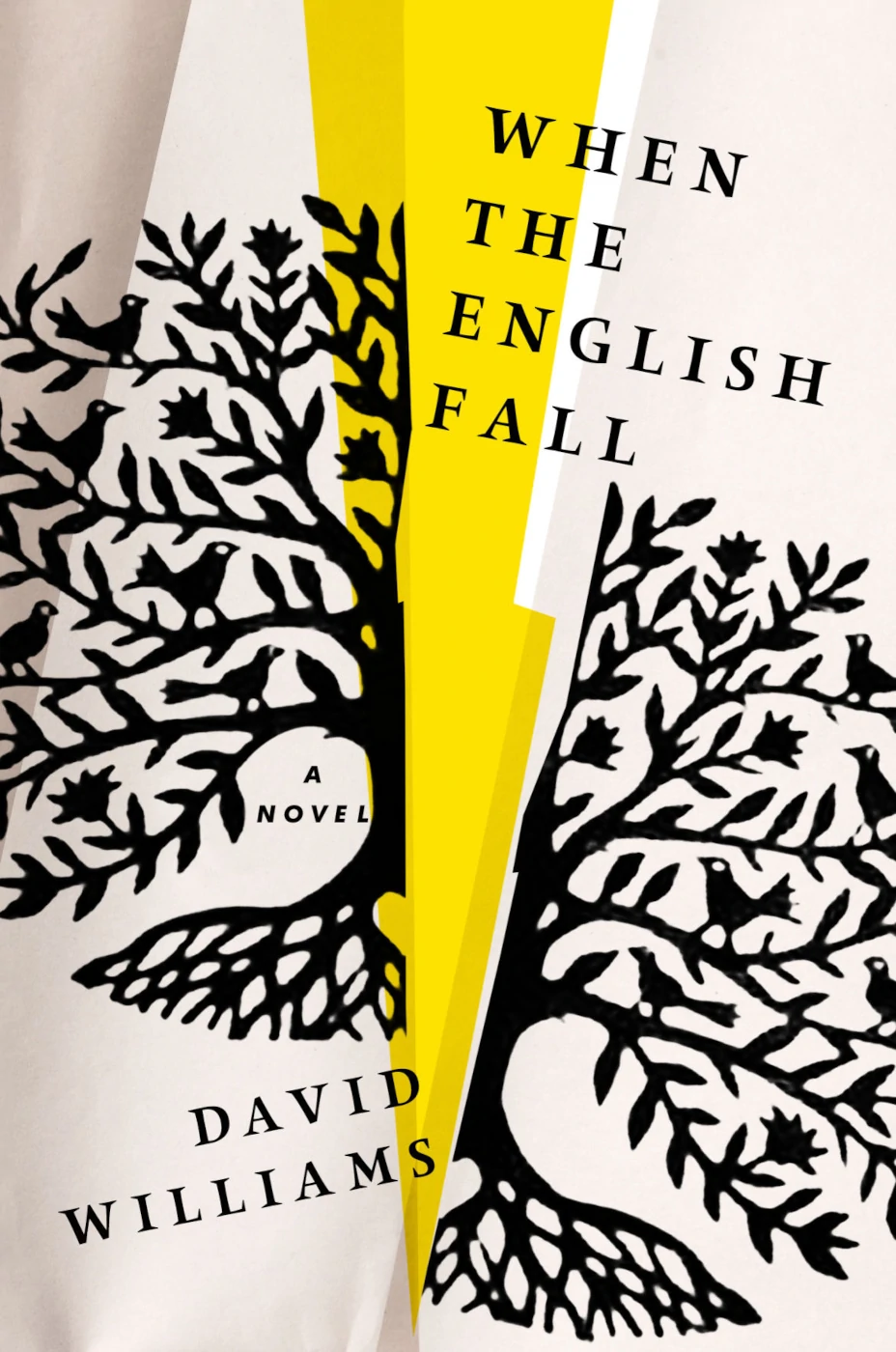
When the English Fall, by David Williams
Words By Alyssa Jordan
Before I peered into the depths of When the English Fall, I read a short essay titled “The Root of Apocalypse,” in which author David Williams explains why he wrote the novel. To my surprise, I learned the word apocalypse isn’t synonymous with destruction. The word has Greek origins and, to quote Mr. Williams, the most accurate definition is “an ‘unveiling,’ or a ‘making clear.’”
I had no idea our pop culture version of apocalypse was so radically different from the word’s true meaning. For me, the genre had suddenly become compelling again—this is the beauty of what an outstanding author can accomplish. If you have ever found yourself wondering how a writer could possibly approach the apocalypse with a fresh take, then look no further, dear reader: When the English Fall is the book for you.
In the story, a massive solar storm strikes the planet, devastating modern civilization. Planes fall from the sky, phones are rendered obsolete, and most modern inventions become useless. With their way of life shattered, the English—a term for anyone outside the Amish community—no longer have a consistent food source or any kind of real societal structure. We are given the story through the eyes of Jacob, a quiet, peaceful Amish man that struggles to stay true to his beliefs in a time of hunger and violence. Because the Amish are uniquely equipped to handle such a catastrophic event, with their crops, stocked larders, and self-reliant ways, they become targets for those that have no other means to survive.
Williams realistically captures the grisly aftermath of such an event. And yet, while he does not spare us the gory details, he also explores the richness of family, simple living, and the ultimate goodness inherent in most of humanity. When certain groups become increasingly desperate, violence strikes Jacob’s community like a hail of bullets. Williams portrays how particularly abhorrent cruelty is when inflicted on such a giving, peaceful group of people.
Jacob’s English neighbors share this abhorrence, and they create militia-like watch groups to dole out their version of justice. While they aim to protect themselves in addition to the Amish, their actions conflict directly with Amish beliefs. Therein lies the powerful dilemma at the core of the novel: do the Amish protect themselves and sacrifice all their beliefs, or do they remain as they are and risk their lives?
Of course, there are no easy answers. In a way, each character must face a similar dilemma. Mr. Williams handles these delicate situations with a sure, deft hand, and we are often left feeling empathy for each character, even those that we initially feared or disliked. As Jacob feeds us pieces of the story through journal entries, we learn that his daughter, Sadie, can predict certain events that come to pass. This adds a surreal element to even the earliest pages of the novel, long before the solar storm cleaves modern civilization in two.
Despite the natural simplicity of its telling, When the English Fall is a complex, fascinating story that transcends the apocalyptic genre. I think Mr. Williams says it best:
“What would the Amish do, I wondered, when we English fell? And from that wondering, this apocalyptic story took form, told through the journal entries of that imagined Amish man on a hillside. It reveals, or so I hope, a little about who we are as human beings and how fundamentally connected we are no matter our beliefs—Amish, English, all of us.”